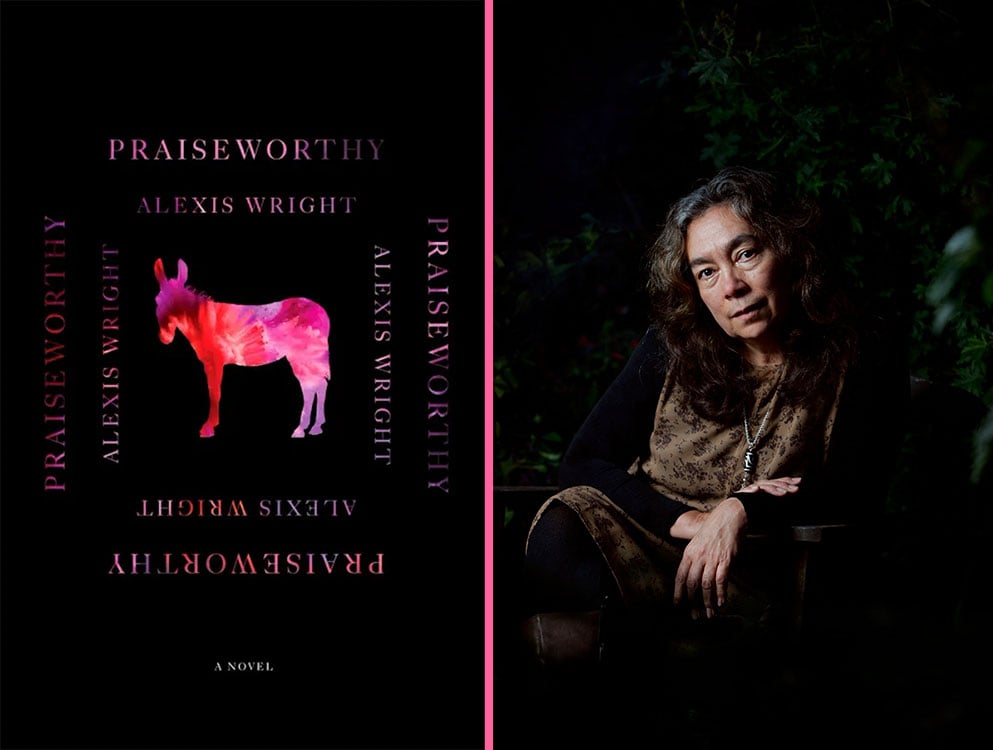Welcome to the brilliant, unsettling, lyrical and urgent work of Alexis Wright, teller of big stories made up of little ones, chronicler of despair, and harbinger of something not quite approaching hope, but not not hope either.
At age 73, Wright is having a moment, one she has graciously agreed to share. In her only launch event for readers in Canada, we at Upstart & Crow literary arts studio are honoured to be in conversation with an author who the New York Times has said is “arguably the most important Aboriginal Australian — or simply Australian — writer alive today.”
Wright is a member of the Waanyi Nation on the Gulf of Carpentaria, on Australia’s north coast. Her second novel, Carpentaria, struggled to find favour with publishers and booksellers — too long, too literary, too Aboriginal — but it won Australia’s highest literary prize, the Miles Franklin Award, in 2007.
Now she’s a “towering figure in Australian letters,” and Carpentaria is being reissued in North America alongside her newest and most ambitious novel, Praiseworthy.
Wright is a long-time advocate for Indigenous rights and a fierce defender of what Aboriginal Peoples in Australia refer to reverentially as “country.” In many ways it feels like a more suitable word than we use in these parts — territory — and country doubles throughout her work as a character rich in wisdom and solace.
She worries for country, beset as it is by the colonial forces that have shaped that other country, the nation state of Australia, and that continue to bedevil and threaten Indigenous communities in ways that should be all too familiar to Canadians.
Under a veil of reconciliation and recognition, even with an apology tucked neatly into the rhetorical fold, the colonial project there, as here, continues unchecked.
In Praiseworthy, climate change, the most existential threat of all, appears over a town of the same name as a foreboding haze, a product of “the mess of colonialism and racism, the wholesale disaster of the Anthropocene.”
ONE EVENING IN THE DRIEST GRASSES IN THE WORLD, A CHILD WHO WAS NO STRANGER TO HER PEOPLE, ASKED IF ANYONE COULD FIND HOPE.
THE PEOPLE OF PARABLE AND PROPHECY PONDERED WHAT WAS HOPELESS AND FINALLY DECLARED THEY NO LONGER KNEW WHAT HOPE WAS.
THE CLOCKS, TICK-A-TY TOCK, LOOKED AS THOUGH THEY MIGHT RUN OUT OF TIME. LUCKILY THE, THE GHOSTS IN THE MEMORIES OF THE OLD FOLK WERE LISTENING, AND SAID ANYONE CAN FIND HOPE IN THE STORIES: THE BIG STORIES AND THE LITTLE ONES IN BETWEEN.
In prose that has shades of James Joyce, Gabriel Gárcia Márquez and Carlos Fuentes, fantastical characters emerge, like Cause Man Steel, hell bent on harnessing the power of millions of super-charged feral donkeys, a “fleet,” no less, a “road train transport empire” that he claims will reduce carbon emissions and make him the first Aboriginal billionaire in the land.
He simultaneously appears under the name Widespread — in his role as a public broadcaster and promoter — and again as Planet, in his role as an environmental evangelist, or “collapsologist.” His wife is Dance Steel, moth-er (she is obsessed with moths and butterflies) to their children, Aboriginal Sovereignty and Tommyhawk.
Wright is a great satirist (in Carpentaria, a policeman is known as Truthful, and the central character is Normal Phantom), and she doesn’t spare her own people with her gritty, coruscating depictions of life in Aboriginal townships. But she is even more unsparing with the small-town racists of rural Australia and big talking governments down south.
Her humour is jet black, her ear for deception acute. There are shades of author Eden Robinson at times; Wright’s “stories of troubles,” like Robinson’s, force one to wince at just how hard it is to “reconcile” outright genocide with ongoing attempts at assimilation.
If this all sounds kinda dark, well it is, but Alexis Wright is so thoroughly original and refreshingly honest that it’s impossible not to feel welcome in her bracing and incendiary incantations. In the end, hers feel less like Australian stories and more like universal ones.
Ian Gill will host an online conversation with Wright about her epic novels, her work outside writing and her Indigenous resistance on Tuesday, April 30 at 7 p.m. PDT. Tickets are available via the event page.
This event is presented by Upstart & Crow and the Vancouver Writers Fest, with thanks to New Directions Publishing. ![]()
Read more: Indigenous, Books
This article is part of a Tyee Presents initiative. Tyee Presents is the special sponsored content section within The Tyee where we highlight contests, events and other initiatives that are either put on by us or by our select partners. The Tyee does not and cannot vouch for or endorse products advertised on The Tyee. We choose our partners carefully and consciously, to fit with The Tyee’s reputation as B.C.’s Home for News, Culture and Solutions. Learn more about Tyee Presents here.


















Tyee Commenting Guidelines
Comments that violate guidelines risk being deleted, and violations may result in a temporary or permanent user ban. Maintain the spirit of good conversation to stay in the discussion and be patient with moderators. Comments are reviewed regularly but not in real time.
Do:
Do not: